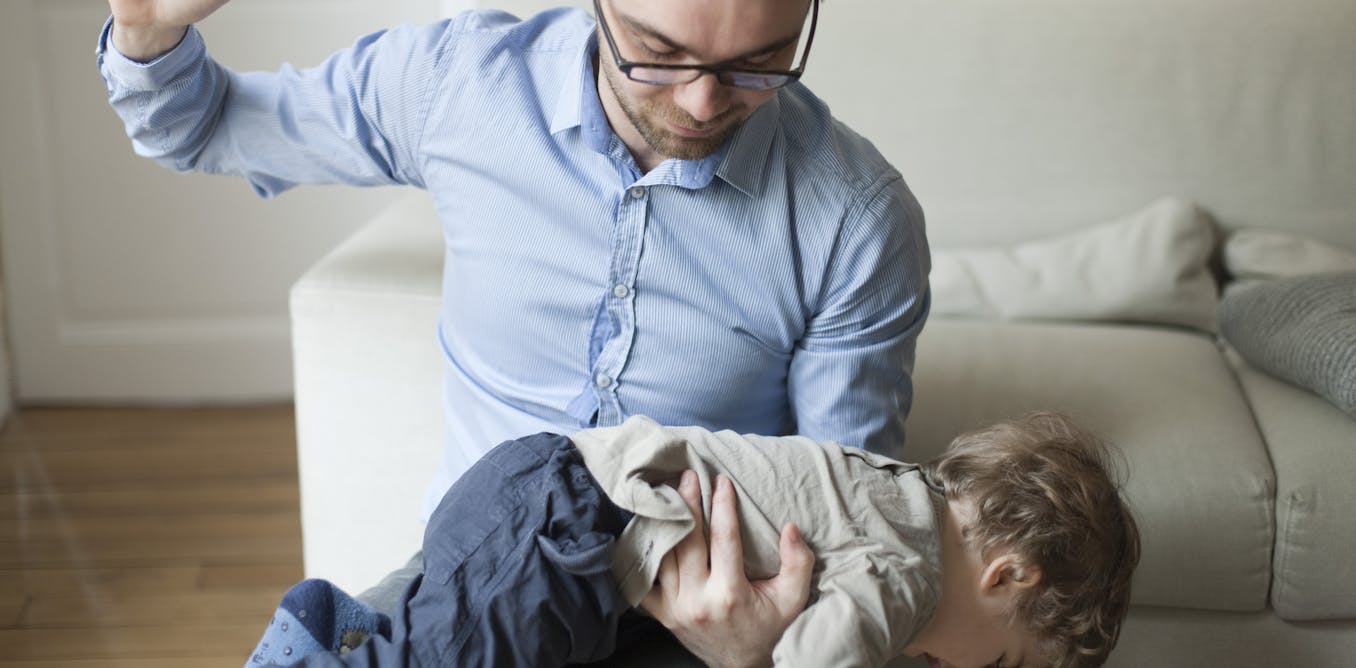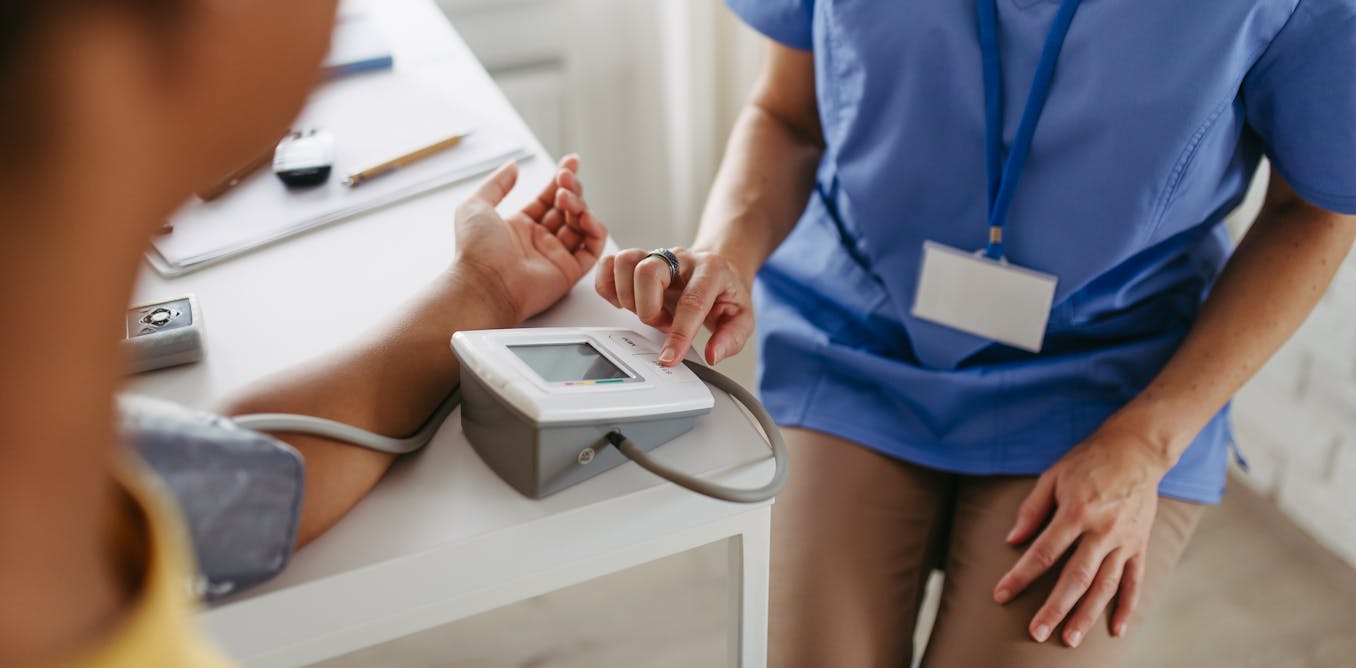WHEN Married At First Sight’s Ryan Livesey wet the bed he blamed it on having too many beers.
But the 29-year-old “went instantly numb” when he finally addressed the health issues he’d been ignoring for seven months and was diagnosed with cancer.
7

7

7
Aged just 22 at the time, and with a baby on the way with his ex-partner, Ryan was terrified that he wouldn’t see his son grow up or even be born.
“I started wetting the bed, it was really embarrassing but I put it down to having too much to drink and of course, I didn’t tell anyone and hid it,” Ryan says.
“I’d go to the toilet and not feel like I was emptying my bladder properly.
“I’d have to go again 20 minutes later because I couldn’t hold it in.
“Looking back now, I should have known something was wrong but because the increase in frequency happened gradually, I was able to ignore it.
“If I’d gone to the doctors when I first experienced symptoms in 2016, things could have been different.
“Every bloke reading this will know there are posters in public toilets with health messages on them but we tend to ignore them.”
Ryan, now in remission, is urging men to pay attention to their health and believes most men put it off out of embarrassment or pride.
But dropping his trousers saved his life – and he’s now hoping to find a long marriage on the screen.
The semi-professional football player and TV bride Sionainn were the last couple to enter the latest series of Channel 4’s MAFS UK in scenes aired last night.
Ryan’s first symptoms
Ryan first noticed blood in his urine after a night out with mates in the spring of 2017 – having already been experiencing bed-wetting since the end of 2016.
“It was April,” recalls Ryan. “I know because it was the night of the Anthony Joshua/Wladimir Klitschko fight.
“I’d been on the beers with some mates and when I went to the toilet towards the end of the night, I had a bit of blood in my urine.
“It wasn’t loads, maybe a bottle top full so I just put it down to drinking too much and tried not to think too much about it.”
While he told his aunty who he’s close to, Ryan kept trying to ignore his mounting symptoms, rejecting his aunt’s advice to go and see his GP.
He says: “I don’t know what I thought but I knew I didn’t want to see a doctor.
“I suppose a bit of me felt embarrassed about it, but unfortunately, it didn’t go away.”

7

7

7

7
It was around May 2017 when his symptoms got to breaking point after football training one night.
“I urinated pretty much pure blood,” Ryan admits.
“I was 22 years old, my ex-partner was pregnant with my son, who was due in November that year. I was about to be a father, and I had weed pure blood.
“Yes I knew I had something wrong, but I didn’t think for a second it’d be something serious. I thought at worst it’d be kidney stones or something like that.”
‘Old man’s disease’
After reluctantly making an appointment with his GP in June 2017, Ryan was diagnosed with stage two bladder cancer.
He became one of the 10,500 people in the UK each year – and 29 per day – to receive this devastating news.
“I was in complete shock,” Ryan admits.
“Don’t die cos you’re shy”, said the late, great Dame Deborah James
By Lizzie Parry, The Sun’s Head of Health
WE’RE all guilty of ignoring our bodies at times. I know I am!
Whether it’s the absolute dread of waiting on the phone in the 8am rush for a GP appointment or just sheer denial, it’s no doubt easier to just turn a blind eye.
For many of us though, it’s embarrassment that stops us seeking help.
When it comes to symptoms affecting bowel habits, ‘down there’ or anything even remotely taboo, it’s common to just shy away from saying anything.
The harsh reality is that your embarrassment could prove fatal.
I’ve been a health journalist for many, many years and I can’t count the number of times I’ve covered heartbreaking stories of people leaving their ‘embarrassing symptoms’ too late.
It could be the urge to pee more, a change in pooing habits, blood in your poo, or as in Ryan’s case bedwetting.
As the late, great Dame Deborah James said countless times in her Sun column, Things Cancer Made Me Say, ‘don’t die because you’re shy!’.
I was lucky enough to call Dame Debs a friend, and edited her column for over five-and-a-half years.
The fearless campaigner never stopped reminding readers and her followers on Instagram that early diagnosis really can save lives.
The earlier cancer is detected, the greater the chance of treating it and living.
Like Debs, Ryan is brave to speak out about what he’s been through and his doing so will no doubt help other men in a similar situation.
Whether it’s checking your boobs for signs of breast cancer, your balls for signs of testicular cancer, there are checks we can all do each month to keep an eye on our health.
The key thing is just being aware of your body and what’s ‘normal’ for you.
Getting to know that ‘normal’ will help you detect any changes, hopefully at the earliest opportunity.
When it comes to speaking to your GP about any symptoms, especially any that you’re embarrassed about, just remember this, they really have heard it all before.
After more than 15 years as a health journalist, very few things surprise or embarrass me now, so imagine what it’s like for medics seeing patients day in, day out.
Any GP or doctor I know would tell you they’d rather you flagged something you were worried about and see it end up in nothing to worry about, than face a late cancer diagnosis with little hope of treatment.
So, in the words of Dame Debs… ‘don’t die cos you’re shy’! Speak up and if you feel a GP or doctor isn’t listening, seek a second opinion.
“It’s not something you expect when you’re young, you think it’ll affect older people, that it’s an old man’s disease.
“I remember my doctor saying the word cancer and I felt instantly numb.
“It was like the world closed in around me. All I could think about was my son who was due in five months.
“I’d had symptoms for seven months and it’d taken me that long to see a doctor.”
Ryan was told he’d need surgery to remove the cancer and scrape the lining of his bladder.
All I could think about was the fact I was so excited about being a dad, yet I hadn’t taken my health seriously.
Ryan
He’d also need chemotherapy for a week.
During treatment for one of three recurrences that happened in the next 18 months, the huge toll of the diagnosis came crashing down on him.
He says: “Leo was born on November 11 and it was the best day of my life.
“Even with everything else going on treatment-wise, I was so happy. But then the thoughts about not being around for him started to make me feel really low.
“I felt anxiety, depression – all I could think about was the fact I was so excited about being a dad, yet I hadn’t taken my health seriously.”
While Ryan is checked annually now to make sure the cancer hasn’t returned, he admits: “I worry about it a lot.
“Leo’s six now, I want to be here to watch him grow up, I want to be an active dad.
“Leo was part of the reason I went and got checked – despite the fact he wasn’t even born yet. In a way, he helped save my life.”
The new groom says he wishes he’d gone to the GP sooner, warning others: “The thing is, it really can be life or death so men, especially young men need to take charge of their health more.
“If I’d read a story like this when I was experiencing my own symptoms, it’d have made me call the doctor sooner I think.
“When you’re young, you think you’re going to last forever. You think cancer is something that affects other people but men need to get better at taking care of themselves.”
The signs of bladder cancer you should know
There are around 10,500 new bladder cancer cases in the UK every year, according to Cancer Research.
That’s 29 every day, making it the 11th most common form of cancer in the UK.
Smoking is the single biggest risk factor for bladder cancer, causing 45 per cent of cases in the UK.
But exposure to other chemicals, including industrial, is also known to be a cause. Sometimes the cause of bladder cancer is not known.
Around six in 10 cases are in people aged 75 or over, with a steep rise in risk from age 50.
The signs of bladder cancer
- Blood in urine: This is the most common sign. It might not be obvious and may come and go. It might look like streaks of blood, or brown urine.
- A need to urinate more
- A burning sensation when passing urine
- Pelvic pain
- Bone pain
- Unintentional weight loss
- Swelling of the legs




